Are Velella toxic to dogs? Keep your furry friends safe!
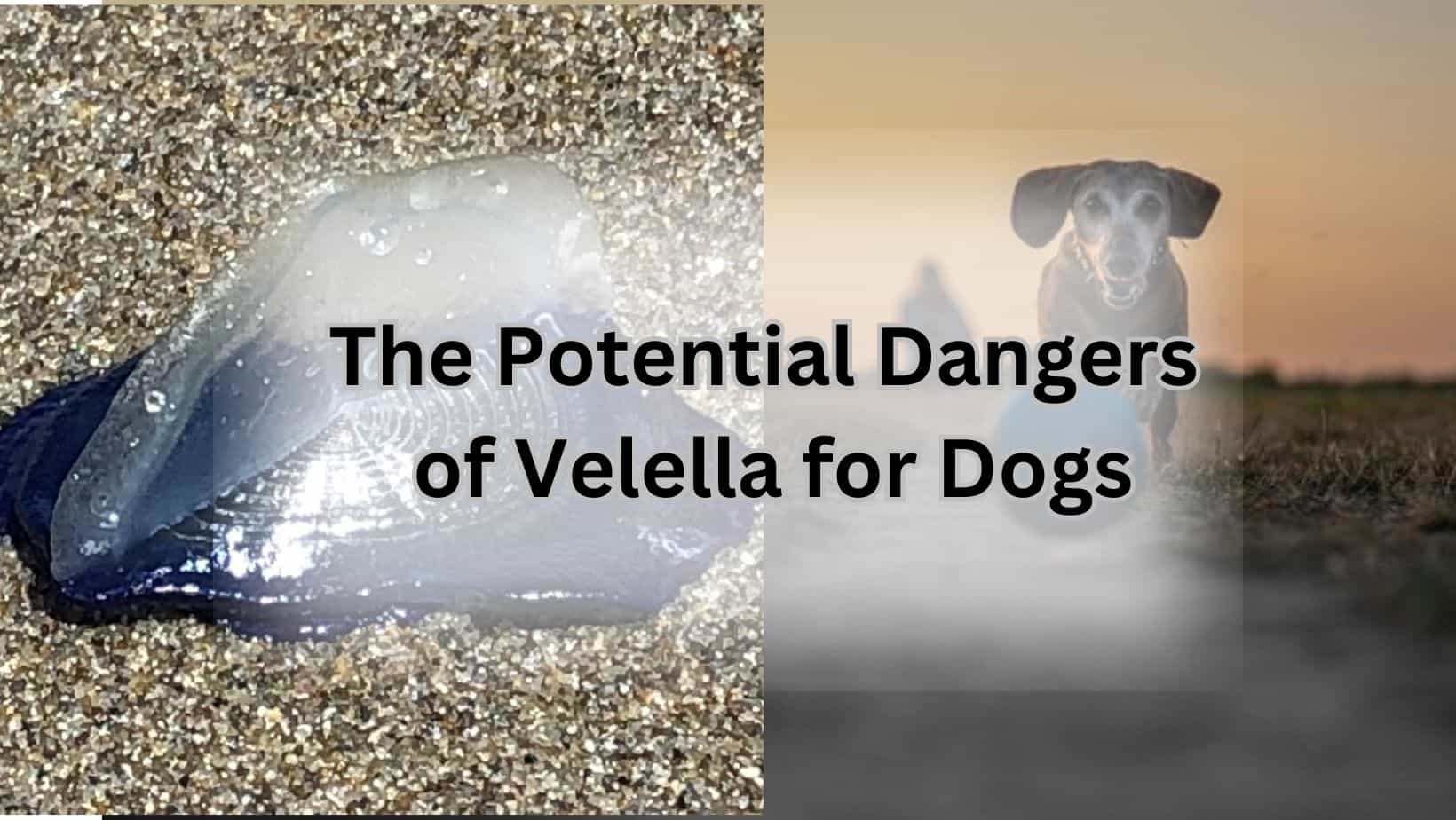
If your dog has come into contact with Velella, it’s crucial to act quickly. The good news is that Velella are generally not considered highly toxic to dogs.
However, their stinging cells can still cause irritation and discomfort if ingested or touched. Immediate action is required to ensure your furry friend’s safety and well-being.
The Potential Dangers of Velella for Dogs
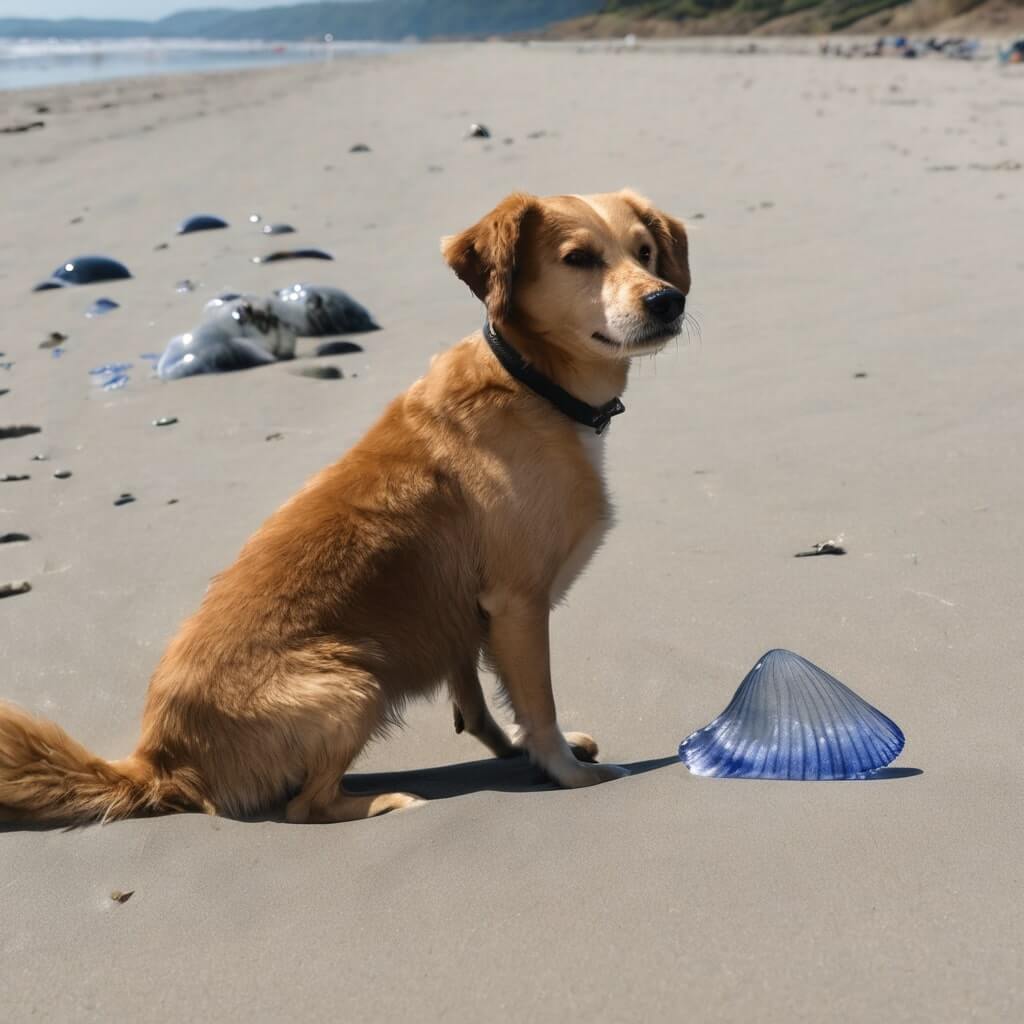
Velella, commonly known as “by-the-wind sailors,” may seem harmless at first glance, but they can pose a significant threat to our canine companions.
These small, jellyfish-like organisms often end up washed ashore on beaches, capturing the curiosity of dogs who explore their surroundings with their noses and mouths. While it may seem innocent, ingesting Velella can lead to a range of symptoms in dogs, requiring immediate attention and care.
Identifying Symptoms of Velella Poisoning
Recognizing the signs of Velella poisoning is crucial for prompt intervention. Dogs affected by Velella ingestion may experience various symptoms, ranging from mild to severe. Gastrointestinal distress, such as vomiting and diarrhea, is commonly observed.
However, in some cases, allergic reactions may occur, posing additional risks to the dog’s health. It is essential for dog owners to remain vigilant and promptly seek veterinary assistance if their dog displays any unusual symptoms after potential Velella exposure.
Treatment Options for Velella Poisoning
If your furry friend has managed to consume Velella, swift action is necessary to mitigate the consequences. Inducing vomiting may be recommended as an initial response, but it is important to consult a veterinarian before attempting this.
Professional guidance is vital to ensure the safety and well-being of your pet. Veterinarians may employ various treatment measures, tailored to the severity of the symptoms, to address Velella poisoning in dogs effectively. Timely intervention can greatly enhance the chances of a successful recovery.
Preventing Velella Poisoning in Dogs
As the saying goes, prevention is better than cure. To safeguard our four-legged companions from the potential dangers of Velella, proactive measures are imperative.
When visiting beaches where Velella sightings are common, dog owners should exercise caution and employ preventive strategies. Keeping dogs on leashes, maintaining close supervision, and discouraging them from investigating washed-up Velella can significantly reduce the risk of ingestion.
Additionally, familiarizing oneself with local beach conditions and being aware of Velella presence can aid in selecting safer areas for canine recreation.
Velella Identification and Habitat
Are Velella really as harmless as they seem?
When it comes to Velella, these fascinating creatures are indeed a sight to behold. With their striking blue sails floating gracefully on the ocean’s surface, they may seem harmless at first glance. However, looks can be deceiving, especially when it comes to the potential dangers they pose to our furry friends.
What do By-the-wind Sailors look like and where can they be found?
Velella, also known as “By-the-wind sailors,” are small jellyfish-like creatures that drift on the ocean currents. They have a clear, gelatinous body with a distinctive blue sail that catches the wind, allowing them to sail across the water. These creatures are often found in warm waters, especially along coastal regions where they can wash up on beaches in large numbers.
How do Velella interact with marine life and what risks do they pose to dogs?
While Velella may not be directly poisonous to dogs, they can still pose a risk to our canine companions. Dogs are naturally curious creatures and may be tempted to investigate these mysterious creatures washed up on the shore.
If ingested, Velella can cause gastrointestinal issues in dogs, leading to symptoms like vomiting, diarrhea, and abdominal pain. In some cases, dogs may even experience allergic reactions to Velella stings, resulting in skin irritation or more severe complications.
Velella and Environmental Impact
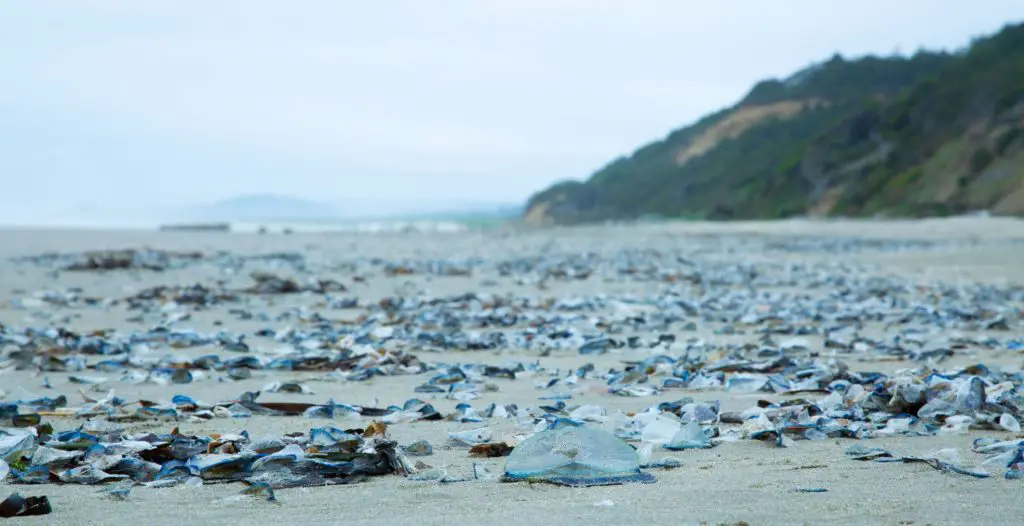
Are Velella Harmful to the Ecosystem?
Have you ever wondered about the role of Velella in the marine ecosystem? These fascinating creatures play a crucial part in the ocean’s delicate balance. Velella serve as food for various marine animals, contributing to the intricate food web that sustains life in the sea.
How Do Velella Blooms Affect the Marine Environment?
Velella blooms can be a sight to behold, but they also have implications for the marine environment. These blooms can impact the distribution of plankton and other organisms, potentially disrupting the ecosystem’s equilibrium. Understanding the effects of Velella blooms is essential for preserving marine biodiversity.
What Conservation Efforts are in Place for Velella and Marine Life?
Conservation efforts are crucial to protect Velella and other marine life from threats such as pollution, climate change, and habitat destruction. By raising awareness about the importance of these creatures and advocating for sustainable practices, we can help safeguard the marine environment for future generations. Let’s work together to ensure the well-being of Velella and the diverse array of species that call the ocean home.
Dogs and Marine Life
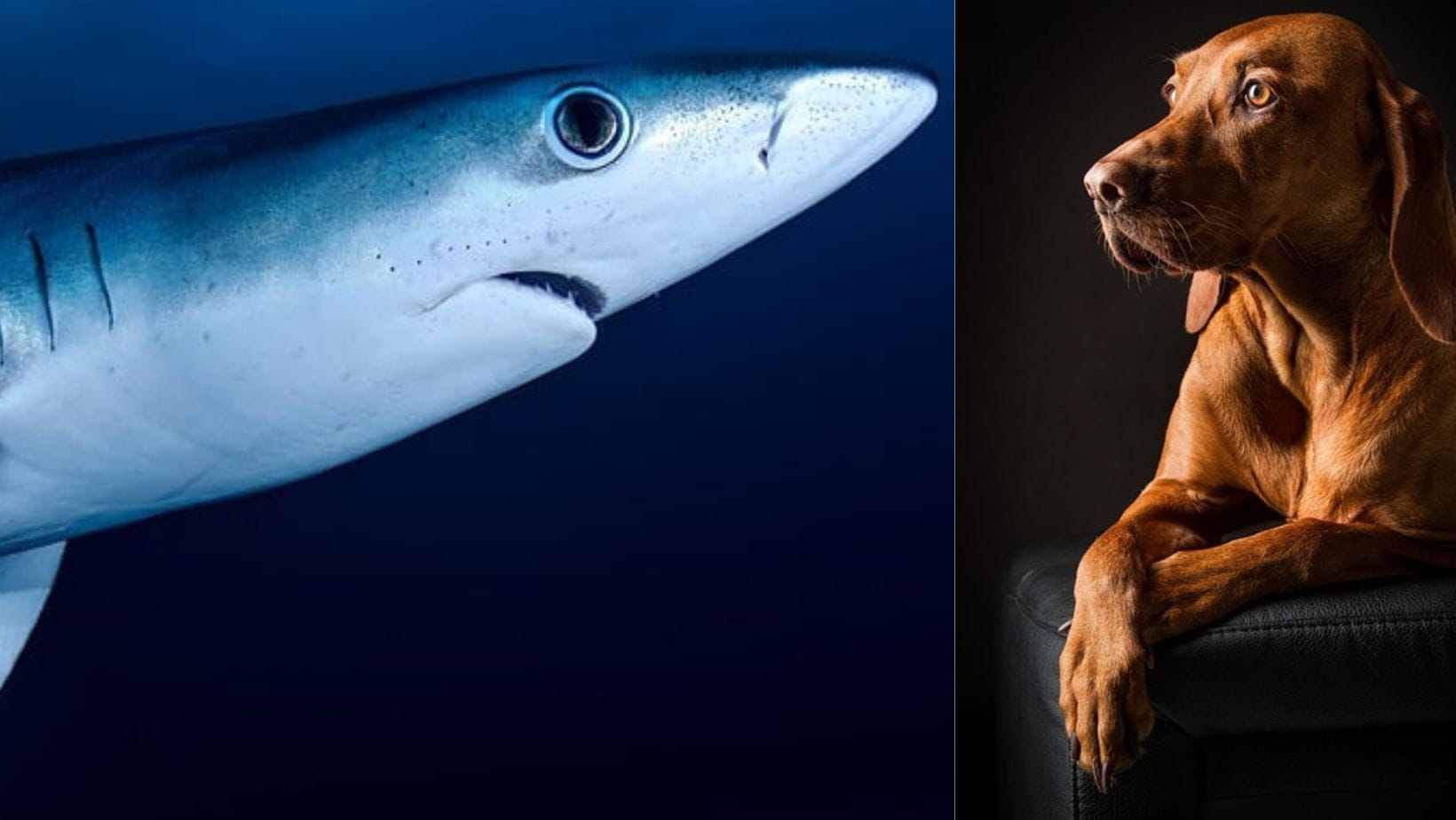
Dogs’ Curiosity Towards Marine Creatures
Ever wondered why dogs are so fascinated by the strange creatures they encounter at the beach? Well, it turns out that their curious nature often leads them to investigate marine life, including the mysterious Velella. These floating sea creatures might look intriguing to our furry friends, but are they safe to interact with?
Risks of Dogs Ingesting Marine Organisms
Picture this: your dog happily frolicking on the shore, only to stumble upon a Velella washed up on the sand. In a moment of curiosity (or perhaps hunger), they decide to take a bite. But wait, are Velella poisonous to dogs?
While these creatures are not generally considered toxic to canines, ingesting them can still lead to digestive issues or an upset stomach. It’s always best to keep a close eye on your furry companion to prevent any mishaps with marine organisms.
Related: Can Dogs Snack on Goldfish? The Truth Revealed!
Training Dogs to Avoid Harmful Marine Life
So, how can we train our dogs to steer clear of potentially harmful marine life like Velella? One fun approach is to incorporate positive reinforcement training. Teach your dog to “leave it” when they come across something unfamiliar on the beach.
Reward them with a tasty treat when they obey, reinforcing the idea that ignoring marine creatures equals a yummy reward. This way, you can help keep your furry friend safe while still enjoying beach adventures together.
Remember, while Velella might not be poisonous to dogs, it’s essential to monitor their interactions with marine life to ensure their safety and well-being. With a bit of training and supervision, you can enjoy beach days with your canine companion worry-free.
So, next time you hit the shore, keep an eye out for those curious noses sniffing around the seashore – you never know what marine treasures they might stumble upon!
Related: Can Dogs Safely Chow Down on Tuna? Find Out Now!
Dog Safety Near the Ocean
Is it Safe for Dogs to Play Near the Water?
Have you ever wondered if it’s safe for your furry friend to frolic near the ocean? Dogs love the water, but as responsible pet owners, we need to ensure their safety.
When it comes to dogs and the ocean, supervision is key. Not only do you want to prevent them from getting lost at sea, but you also need to watch out for potential dangers lurking in the water.
Training Dogs for Water Safety
Are you ready to teach your pooch some water safety skills? Just like humans, dogs need to learn how to navigate the waves. Start by introducing your dog to shallow waters and gradually increase the depth as they become more confident.
Teaching them to swim back to shore and avoiding strong currents is essential. Remember, not all dogs are natural swimmers, so take it slow and make it a fun learning experience.
Providing Safe Beach Activities for Dogs
What kind of beach activities can you enjoy with your furry companion? While playing fetch on the sand is a classic favorite, you can also try introducing your dog to water toys like floating balls or frisbees.
Just make sure they don’t venture too far into the ocean where potential dangers like Velella may be lurking. Keep a close eye on your pup and always have fresh water available to keep them hydrated.
Remember, the ocean can be a fun playground for dogs, but it’s essential to prioritize their safety. With proper supervision, training, and engaging beach activities, you can ensure that your furry friend has a blast while staying safe near the water.
So, grab your sunscreen, pack some snacks, and get ready for a pawsome day at the beach with your beloved canine companion!
Marine Life Awareness for Dog Owners
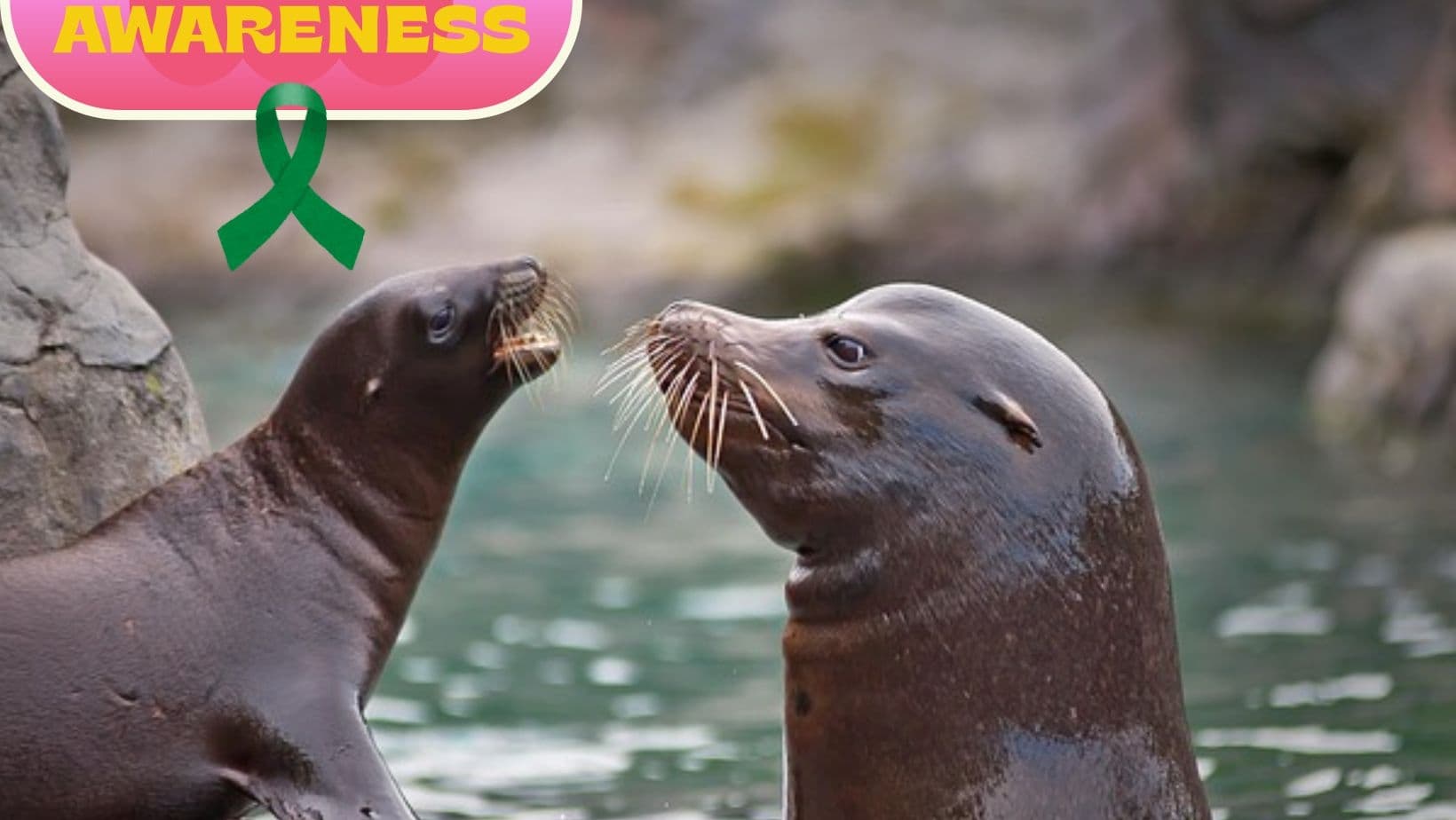
Are Velella a Danger to Dogs?
Picture this: you and your furry friend enjoying a day at the beach, the sun shining, the waves crashing, and suddenly, you spot some mysterious blue creatures washed up on the shore. But wait, are those Velella? And are they dangerous for your canine companion?
When it comes to Velella and dogs, it’s essential to be cautious. These beautiful blue creatures, often mistaken for jellyfish, are actually hydrozoans that float on the ocean’s surface. While Velella are not typically considered highly toxic to humans, the situation can be quite different for our four-legged friends.
Understanding the Risks
Now, you might be wondering, can Velella actually harm my dog? Well, the answer is a bit complicated. While Velella themselves might not be poisonous to dogs, their stings can cause irritation, redness, and discomfort. In some cases, dogs may even experience allergic reactions or digestive issues if they ingest these creatures.
So, what should you do if your dog encounters Velella at the beach? First and foremost, keep a close eye on your furry pal.
If you notice any signs of distress, such as excessive licking, drooling, or vomiting, it’s essential to seek veterinary attention immediately. Remember, prevention is key when it comes to keeping your dog safe from potential marine hazards.
Practicing Responsible Pet Ownership
As a responsible dog owner, it’s crucial to educate yourself about the dangers that marine life can pose to your furry friend. By staying informed and taking proactive measures, you can ensure that your dog stays safe and healthy during your beach outings.
So, next time you hit the shore with your pup, keep an eye out for those enchanting Velella and remember to prioritize your dog’s well-being above all else.
With a bit of awareness and caution, you can enjoy the beauty of the ocean with your canine companion without any worries. So, go ahead, let your dog splash in the waves, but always keep an eye out for those sneaky Velella!
Toxicity of By-the-wind Sailors to Dogs
Are Velella really poisonous to our furry friends?
Can dogs get sick from these mysterious creatures found on the beach? As a Canid Wild Life Lover, you might be wondering about the effects of Velella on our four-legged pals.
Well, the truth is, Velella can indeed pose a threat to dogs if they come into contact with them. These jelly-like creatures, also known as “by-the-wind sailors,” can sting dogs if they are touched or ingested.
How can Velella affect canine health?
But what exactly happens when a dog encounters Velella? What are the symptoms of Velella poisoning in dogs, and how can we protect our furry friends from this potential danger?
Velella stings can cause skin irritation, redness, and swelling in dogs. If ingested, they can lead to gastrointestinal issues such as vomiting and diarrhea. In severe cases, Velella poisoning can even result in more serious complications that require immediate veterinary attention.
Are Blue Sail Jellyfish Poisonous to Dogs?
If your furry friend stumbles upon these captivating yet potentially perilous creatures while frolicking on the beach, it’s crucial to act swiftly but calmly. Velella, commonly known as “by-the-wind sailors,” might look enchanting with their vibrant blue sails, but their venomous cells can pose a threat to curious canines.
If your dog comes into contact with a blue sail jellyfish, keep a close eye on them for any signs of distress or unusual behavior. Symptoms of Velella poisoning in dogs can include drooling, vomiting, difficulty breathing, and in severe cases, even paralysis. While there isn’t a specific antidote for Velella poisoning, prompt veterinary attention is imperative.
As a responsible pet parent, your best course of action is to immediately contact your vet and describe the situation in detail. They can provide guidance on whether your dog needs immediate medical intervention or if supportive care at home is sufficient. Remember, when it comes to your pup’s health, it’s always better to err on the side of caution.
Marine Toxin Regulations and Reporting
Are Government Agencies Keeping an Eye on Marine Toxins?
Ever wondered who’s watching out for those pesky marine toxins that could harm our furry friends? Well, fear not, for government agencies are on the case! From the FDA to local environmental protection departments, there’s a whole squad dedicated to monitoring the levels of toxins in our oceans.
How Can You Report Marine Toxin Incidents?
So, what should you do if you suspect your dog has fallen victim to a marine toxin like Velella? Don’t fret, there’s a hotline for that! Reporting marine toxin incidents is crucial for tracking outbreaks and ensuring swift action to protect not only our pets but also the general public. Remember, a quick call could save a pup’s life!
Are Public Awareness Campaigns Making a Splash in Marine Toxin Safety?
Have you seen those catchy ads about marine toxin safety? They’re not just for show! Public awareness campaigns play a vital role in educating pet owners and beachgoers about the risks of marine toxins like Velella. So, next time you hit the beach with your furry companion, keep an eye out for those informative posters and flyers – they might just save the day!
Remember, when it comes to marine toxins and our beloved pets, knowledge is power. Stay informed, be vigilant, and most importantly, keep those doggos safe from any potential dangers lurking beneath the waves! 🐾🌊
Dog-Friendly Beach Guidelines

Rules and Regulations for Dogs at the Beach
Are you wondering how to make sure your furry friend has a pawsome time at the beach without breaking any rules? Well, let me fetch some guidelines for you!
Remember, always check the local rules before heading out with your canine companion. Keep your doggo on a leash, clean up after them, and make sure they are well-behaved around other beachgoers.
Safety first, fur-iends!
Dog-Friendly Beach Locations
Looking for the best beaches to take your dog for a day of sand, sun, and surf? Let me give you the scoop on the pawfect spots! From off-leash areas to designated dog-friendly beaches, there are plenty of options for you and your four-legged friend to enjoy some fun in the sun. Get ready to make some wag-tastic memories!
Beach Safety Tips for Dog Owners
Ever wondered how to keep your canine companion safe and happy at the beach? Let me share some beach safety tips with you! Remember to bring plenty of fresh water for your dog to stay hydrated, watch out for hot sand that can burn their paws, and be mindful of potential hazards like sharp shells or… *dun dun dun* Velella! Yes, those mysterious creatures can pose a danger to your dog, so keep an eye out and prevent any mishaps.
So, there you have it! Follow these guidelines, find the pawfect beach spot, and keep your furry friend safe and happy while soaking up the sun. Let’s make sure every beach day is a tail-wagging success for you and your best bud!
Conclusion
Summary of Velella Toxicity to Dogs
Are Velella poisonous to dogs? As a Canid Wild Life Lover with 20 years of experience, it is crucial for me explain the potential dangers that Velella jellyfish can pose to our furry friends.
While Velella are not inherently toxic to dogs, their stings can cause skin irritation and allergic reactions, leading to discomfort for our canine companions. It is essential to be vigilant when walking your dog on the beach to prevent any unwanted encounters with these marine creatures.
Importance of Dog Safety Near Marine Life
How can we ensure the safety of our dogs near marine life like Velella? Educating ourselves on the potential dangers and taking necessary precautions are key.
By keeping a close eye on our dogs while at the beach, we can prevent them from coming into contact with Velella and other marine creatures that may cause harm. Remember, a happy and healthy pup is a well-protected one!
Promoting Awareness and Responsible Ownership
How can we promote awareness and responsible ownership when it comes to our dogs and marine life? By sharing information with other dog owners, we can collectively work towards keeping our furry friends safe.
Responsible ownership entails being proactive in protecting our dogs from potential dangers, such as Velella stings. Let’s work together to create a safe environment for our canine companions to enjoy the beach without any worries.
While Velella may not be directly poisonous to dogs, their stings can still cause discomfort and health issues. As dog lovers, it is our responsibility to ensure the safety and well-being of our four-legged friends.
By staying informed, taking precautions, and spreading awareness, we can create a safer environment for our dogs to thrive in. Let’s continue to prioritize our furry companions’ safety and happiness, both on land and by the sea.


